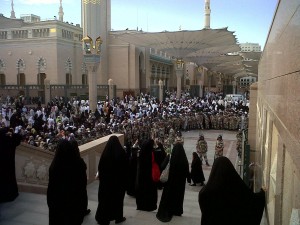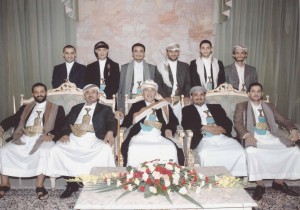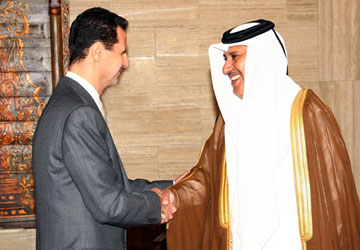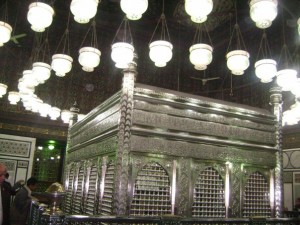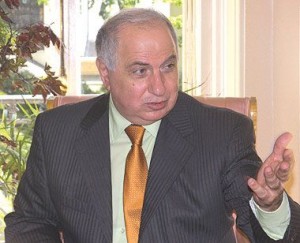In the eyes of many Westerners, the idea of reform in Saudi Arabia is a contradiction. The Al Saud dynasty has long held a monopoly of political, religious, and social power over its citizens. The government currently bans all opposition political parties and tightly controls domestic media outlets. Saudi Arabia has also gained notoriety around the world for its strict interpretation of Sunni Islam called Wahhabism. Despite the apparent lack of freedom, Saudi Arabia has in fact experienced some movements toward reform and modernization over the past few years. Unfortunately, they do not represent a trend toward liberalization and political reform. Rather, they have only appeared in response to events such as lowered oil earnings and threats of terrorism. Given Saudi Arabia’s recent economic successes, it seems unlikely that the kingdom will move toward substantial reform in the near future.
The years of 2001 and 2003 were marked by significant drives for political reform in Saudi Arabia. Concerns over declining oil revenues and rising unemployment formed the basis for domestic dissatisfaction. The participation of 15 Saudis in the September 11, 2001, attacks left the government with a new combination of US pressure and internal calls for reform. In January 2003, 104 Saudi liberal reformers created a “Strategic Vision for the Present and the Future,” which consisted of detailed proposals for democratic changes such as separation of power and elected legislative bodies at the national and provincial levels. This document used religious and legal arguments to justify citizens’ supervision of government actions.
Pressures for reform reached a peak when 12 suicide bombers attacked the capital of Riyadh in May 2003, killing 30 people and wounding 200. Saudis refer to the attacks as their own September 11, and the bombings seemed to initially push the Saudigovernment to reform its authoritarian practices. The Riyadh attacks were followed by unprecedented criticism of religious extremism in the media. The Crown Prince himself made speeches acknowledging the problem of Islamic extremism-acknowledgments that would have been unthinkable just a few years prior. In 2005, Saudis also witnessed their first municipal elections in almost a half-century. That same year, women were even allowed to participate in elections for the board of the Jeddah Chamber of Commerce. The start of the 21st century, thus, seemed a positive one for Saudi reform.
The impact of these reforms, however, should not be overstated. In many cases, they have been overshadowed by continued authoritarian behavior. Despite the optimism of the 2003 petitions, signatories to more recent appeals for reform have faced stiff government resistance. In March 2004, 13 pro-reform activists in favor of a constitutional monarchy were arrested, some of whom are forbidden to travel abroad even today. Perhaps most tellingly, the lauded 2005 municipal elections excluded women, and only half of the seats were contested. Political parties are still banned, and the government retains power over the municipal councils’ budgets. Sadly, even this encouraging glimmer of democracy has proved to be strikingly limited.
Economic growth in the country also suggests that substantive political reform may not arrive any time soon. As the oft-cited maxim goes, the higher the oil prices, the lower the prospect of democracy in the Middle East. The histories of Europe and the United States show that heavy taxation often leads to agitation for reform and greater demands for government accountability. However, the Saudi government’s high oil revenues allow it to forgo all income or corporate taxes. Indeed, owning a quarter of the world’s oil reserves permits the Saudi government essentially to buy off domestic demands for reform. Since revenues flow to the Saudi government directly, it has the option of exercising patronage to benefit political or social actors who demand change. Ways of placating interests include giving land gifts or supplying public services such as education and health care. Furthermore, the high concentration of wealth in the monarchy makes it harder for political groups outside of the government to find financial support. Additionally, since oil production does not necessitate mass labor mobilization, the potential power of unions dissolves. Even if demands for change were to remain strong within certain groups, the middle class’ demonstrated preference for economic stability over political freedom dampens the probability of widespread demands for change.
Current economic indicators may portend a negative political climate for Saudi citizens. In the years leading up to 2003, rising unemployment led to widespread dissatisfaction among the population. The Saudi Arabia of today faces no such problem. In 2006, the country saw a US$100 billion current account surplus and a GDP of US$350 billion. With plans to increase its oil production to 12.5 million barrels per day by 2009, there is little sign that the Saudi government will lose economic control, and thereby political control, over its citizens.
It is certainly possible that a downturn in the Saudi economy will once again spark the possibility for reform. Such reforms, however, would reflect the monarchy’s pragmatism rather than its conviction. Without firm government commitments to political change, it is unlikely that the Saudi government will make permanent, substantial improvements to its citizens’ rights. Reform in the Saudikingdom may not be the hopeless cause it once was, but the prospects for lasting, substantive changes remain illusory.
By Julia Choe



